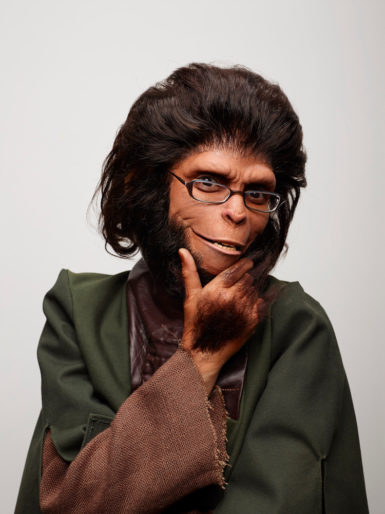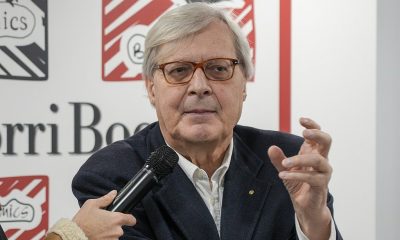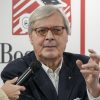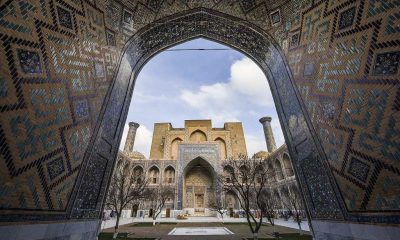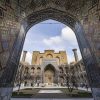ART WORLD NEWS
Coco Fusco Denied Entry to Cuba Ahead of Havana Biennial -ARTnews
[ad_1]
COURTESY THE ARTIST, GENE PITTMAN, AND WALKER ART CENTER
As Cuba welcomes visitors to the Havana Biennial opening on Friday, one artist has been denied entry to the country.
The New York–based Cuban-American artist Coco Fusco traveled Wednesday to attend the 13th edition of biennial, which will include 83 artists from 45 countries under the title “The construction of the possible.” But when she landed at José Marti Airport, she was detained by customs officials and turned away.
“I heard one of the immigration officials refer to me as an ‘inadmissible,’ ” Fusco told ARTnews in a written statement. “I’m not a live plant, cheese, a narcotic, or a pornographic publication, but expressing critical views of repressive measures carried out against artists constitutes grounds for barring my entry to Cuba.”
In her statement, Fusco noted that she is “not the first or the last intellectual with close ties to Cuba who has been punished in this way for expressing my views and advocating for greater freedom of expression in Cuba.”
While Fusco said the officials did not give her a reason for her denial, she speculated that it had to do with her writings on Cuban art and politics as well as her “steadfast support for the artists-led movement in Cuba against Decree 349,” a law issued last July that allows for the Cuban government to control what art is exhibited in the country and whom it considers to be an artist. That decree set off fierce debate internationally, including an open letter that numerous artists and activists, including Fusco, signed.
Read Fusco’s statement on the situation in full.
“INADMISSIBLE”
I am currently sitting in the immigration area of José Marti Airport in Havana. I have been denied entry to Cuba for the second time in the past year. I heard one of the Immigration officials refer to me as an “inadmissible.” I’m not a live plant, cheese, a narcotic or a pornographic publication, but expressing critical views of repressive measures carried out against artists constitutes grounds for barring my entry to Cuba.
I am not the first or the last intellectual with close ties to Cuba who has been punished in this way for expressing my views and advocating for greater freedom of expression in Cuba. It has become a sad routine.
The immigration officials in the airport do not give reasons for my imminent expulsion. I am sure that this is due to my writings on Cuban art and cultural politics, and my steadfast support for the artists-led movement in Cuba against Decree 349. It strikes me as a tragic that a government would harass its artists and to silence critical debate about its culture in order to impress visitors by creating the false impression that the only art in Cuba is what the state wants to show. The state is counting on favorable coverage from visitors who know little and who will stay on the tour buses and remain inside their art corrals. It also counts on the complicity of artists who remain silent in order to be promoted by the state. They benefit from skeptics who believe that political interventions are carried by artists who lack better (i.e. more artistic) ways of getting attention.
Cuban nationals often believe they have no choice because speaking up means social death. How foreigners rationalize their silence Is another very complicated story, in which unwavering support for the Cuban revolution functions as a kind of anti-American chic for globe trotting intellectuals who haven’t had their own lives turned upside down by a state security apparatus.
Those who suggest that every biennial is selective and that Cuba is no different are missing the point or evading it. Since when do biennials in other countries arrest artists who open their studios or run parallel events? Since when do museums arrest artists that protest their practices? Since when is is ok to threaten foreigners who show up for an independently produced art event with deportation? Cuba is indeed different from many other countries in its harsh repression of criticism and cultural activism. It is also different in that culture is the last valuable product for export and whitewashing of its image that the state has left. If artists can determine what aesthetic value is the government will lose the last jewel in its crown.
I find it disturbing that it takes beheadings, stoning and long prison sentences to get most people in the art world to protest censorship and repression of artists. Violence is not reducible to physical aggression. Creativity, imagination and hope die slow deaths in a country where any expression of dissent is criminalized. A biennial every few years doesn’t upend that deterioration.
—Coco Fusco
[ad_2]
Source link



